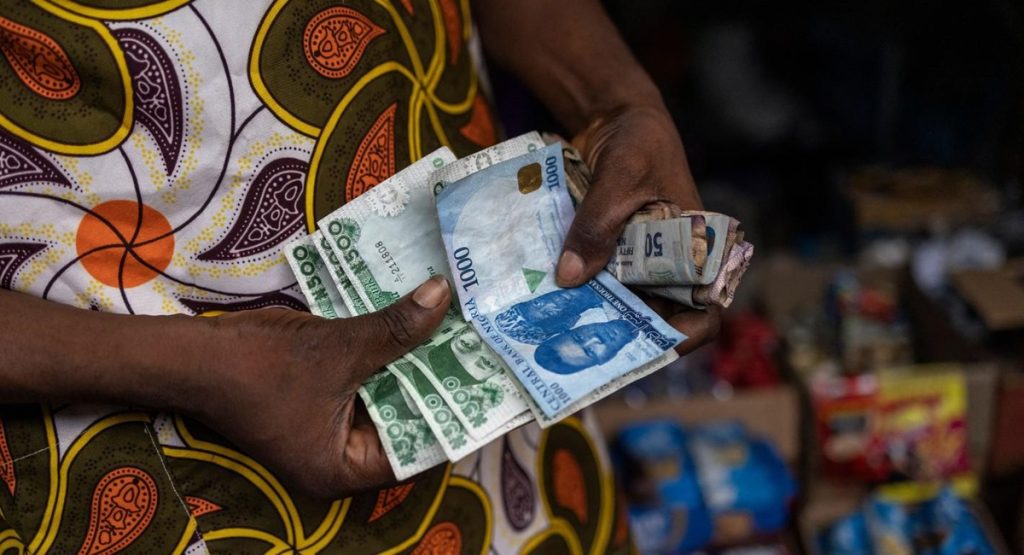The Central Bank of Nigeria (CBN), has declared that Deposit Money Banks discovered to have allowed the illicit transfer of mint naira notes to currency hawkers and dishonest agents will be fined N150 million per branch.

In a circular signed by Mohammed Olayemi, the Acting Director of the Currency Operations Department, the apex bank revealed this information on Friday, December 13, 2024.
The CBN is worried about the growing number of mint naira notes being sold by street vendors, the circular stated. The bank characterised this conduct as preventing consumers and the public from receiving cash in an efficient and effective manner.
Under the directive, any branch of a financial institution found culpable will face a penalty of N150m for the first violation.
Subsequent infractions, the CBN warned, would attract stricter sanctions under the provisions of the Banks and Other Financial Institutions Act (BOFIA) 2020.
To ensure compliance, the apex bank stated that it would increase periodic spot checks in banking halls and ATMs while deploying mystery shoppers to uncover illicit cash hawking spots across the country.

Referencing a previous instruction dated November 13, 2024, the circular emphasised the apex bank’s resolve to tackle the naira’s commodification.
A financial institution’s branch found to be at fault will be fined N150 million for the first infraction under the order.
According to the Banks and Other Financial Institutions Act (BOFIA) 2020, the CBN cautioned that subsequent violations would result in harsher penalties.
The apex bank said it would use mystery shoppers to find illegal cash-selling locations nationwide and intensify recurring spot checks in banking rooms and ATMs to guarantee compliance.
According to the circular, “The CBN has noted with dismay the prevalence of illicit flow of mint banknotes to currency hawkers and other unscrupulous economic agents that commodify Naira banknotes, impairing efficient and effective cash distribution to banks’ customers and the general public.”CBN will continue to step up its routine spot checks at ATMs and banking halls to examine cash disbursements to bank customers. It will also conduct mystery shopping at all of the locations where cash is allegedly sold throughout the nation.
“In this regard, any deposit money banks or financial institutions that, through direct actions or inactions, facilitate, aid, or abetting the illicit flow of mint banknotes to currency hawkers and unscrupulous economic agents that commodify Naira banknotes shall be penalised at first instance N150,000,000.00 (one hundred and fifty million Naira) only, per erring branch, and the full weight of relevant provisions of BOFIA 2020 at later instances.”
Additionally, the CBN advised DMBs to improve the controls, procedures, and processes around their Cash Management Centres, branches, and teller operations in order to stop unlawful transactions from taking advantage of their systems.
The CBN warned Deposit Money Banks that cash hoarding and diversion will result in severe penalties, according to a previous article by the PUNCH.
In a November 13, 2024, circular issued by the CBN and signed by Mohammed Olayemi, Acting Director of Currency Operations, the apex bank declared heightened efforts to guarantee effective and transparent currency disbursement.
As the holiday season draws near, the CBN reminded banks of its continuous mystery shopping campaigns and spot checks designed to prevent naira note abuse and guarantee responsible cash distribution.
The actions are intended to facilitate effective cash disbursement to the public and stop the flow of freshly struck banknotes to hawkers, the circular states.
Any DMB found to have taken money from unlicensed hawkers will be subject to fines, the central bank said.
These banks will be penalised 10% of the entire amount of money they took out of the CBN on the day the offence was committed.
Each subsequent violation will result in an extra 5% penalty for repeat offenders.
The CBN emphasised that currency hoarding, diversion, and other cash flow-hindering acts are prohibited by the Clean Note Policy and issued a warning against them.
“Defaulters would be subject to suitable penalties, which could include further fines or other regulatory measures,” it stated.


